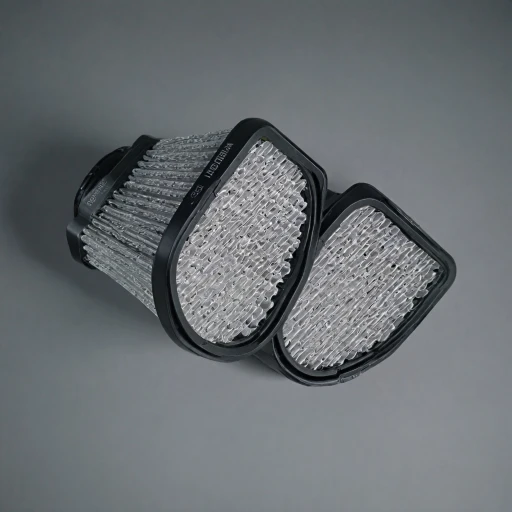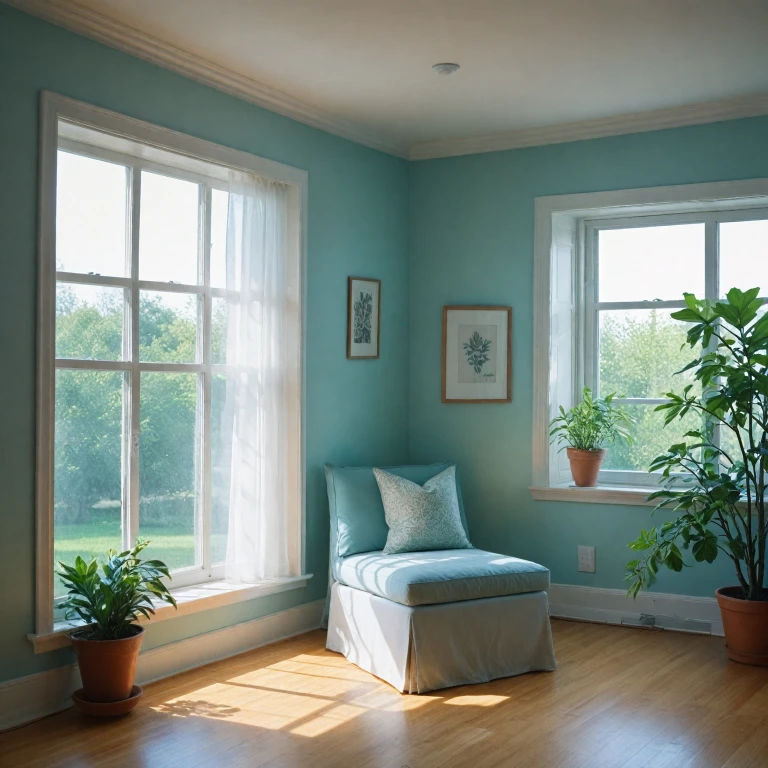Understanding Air Filter Sizes
Dimensions Matter: Choosing the Appropriate Air Filter Size
Selecting the correct air filter size is crucial for maintaining optimal air quality and ensuring the efficiency of your hvac system. One such common size is the 14x24x1 air filter, a standard that's often utilized in various furnace and air conditioning systems. To make a smart choice, a buyer should understand how this size interacts with their existing system to trap airborne particles effectively.
Improperly sized filters can lead to inefficiencies in filtration efficiency and may even result in extra costs. For example, a filter that's too big might not fit properly, allowing unfiltered air to bypass the system. Conversely, a smaller filter could let particles escape, affecting air quality. Homeowners often purchase filter packs to save money and ensure they have replacements on hand for several months, considering the regular maintenance required as part of the filter system upkeep.
Understanding these dimensions, alongside material quality and merv rating, can help maintain air quality and extend the life of your system. By carefully assessing the filter's original size specifications and the space it will occupy in your hvac or furnace system, you promote a sustainable and efficient air environment. For those unsure about what kind of system to connect their filter with, an additional resource to consider is learning about the distinction between air purifiers and other devices like dehumidifiers
here.
The Role of Air Filters in Air Purification
The Crucial Role of Air Filters in Maintaining Clean Air
Air filters are fundamental components in any HVAC system, whether in residential or commercial settings. They play a vital role by capturing airborne particles, ensuring the air you breathe is cleaner and healthier. Key to effective air filtration, filters are designed to trap dust, pollen, mold spores, and other contaminants that can compromise air quality.
An essential aspect of air filters is their ability to enhance the efficiency of a furnace system. Utilizing a high-quality air filter can help prolong the lifespan of your HVAC system by preventing dust and debris from accumulating on critical parts. For optimal results, many homeowners opt for pleated filters, which offer higher MERV ratings, indicating better filtration efficiency.
Air filters are available in various styles and MERV ratings. It's important to assess both the filter's capability to clean air and its compatibility with your existing HVAC setup. Buyers will often turn to verified purchase reviews to ensure their choice meets the original promises regarding quality and performance.
Choosing the right filter pack involves balancing the MERV rating with the system requirements. High-efficiency MERV filters are excellent for capturing small particles but can restrict airflow if not properly matched with the HVAC system. To
choose the right compact air purifier for your space, reflecting on your specific needs and usage conditions is crucial.
Understanding the role of air filters isn't just about improved air quality. These filters also function as an odor eliminator by capturing smell-causing particles, enhancing the comfort of your living environment. Verified buyers often notice significant improvements in air quality and system performance after upgrading their air filters, which can turn into monetary savings by reducing the need for frequent HVAC maintenance.
When it comes to maintaining clean air over several months, regular replacement of filters is necessary. The standard frequency is usually every three months, although this can vary based on the environment and MERV rating of your air filter. By doing so, you not only maintain the highest air quality but you also save money by preserving the efficiency of your HVAC system.
With an array of air filter options on the market, understanding their role can greatly enhance your home's air quality and system longevity.
Materials and Efficiency Ratings
Exploring Different Materials and Their Efficiency Ratings
When it comes to selecting the right air filters, the materials and efficiency ratings are crucial. These factors determine the effectiveness of your air filtration system in removing airborne particles and maintaining good air quality. Understanding these elements helps you make informed decisions when purchasing air filters, whether it's a single unit or a filter pack.
Air filters are primarily made from various materials such as fiberglass, synthetic fibers, and pleated fabrics. Here's a quick overview to guide a potential buyer:
- Fiberglass Filters: These are among the most affordable and standard options available. Designed mainly for furnaces, they offer basic filtration to protect the HVAC system but may not significantly enhance air quality.
- Synthetic Filters: A step above fiberglass, synthetic filters have higher durability and efficiency in capturing smaller pollutants. They serve well for those looking for a balance between price and performance.
- Pleated Filters: Characterized by increased surface area, pleated air filters capture more particles, improving filtration efficiency. These are often the choice for those prioritizing better air quality and can help in odor eliminator applications.
A crucial aspect when evaluating air filters is the MERV (Minimum Efficiency Reporting Value) rating. This standardized rating indicates a filter's ability to trap different-sized particles. The higher the MERV rating, the more particles the filter can capture. MERV ratings range from 1 to 20, though residential HVAC systems commonly use filters in the 5 to 13 range. When considering a pleat MERV filter, ensure it aligns with your HVAC system's specifications to avoid airflow issues.
To save on costs, purchasing a filter pack can be economical if you confirm compatibility with your system. Verified purchase reviews often provide valuable insights into performance and longevity. Generally, filters should be replaced every few months to sustain high levels of air filtration.
For full details on choosing an air purifier that complements your filtration needs, including options tailored for specific concerns like pet allergies and odors, you may explore resources on effective air cleaner
solutions that address such challenges.
Installation and Maintenance Tips
Mastering the Art of Installation and Maintenance
Installing and maintaining your 14x24x1 air filter is critical to ensuring optimal performance of your HVAC system. Proper installation contributes significantly to air quality and overall system efficiency. Here's what every buyer needs to know:
- Correct Placement: Begin by ensuring that the filter fits snugly within the air filter slot of your furnace or HVAC system. Misalignment can cause air bypass, leading to reduced filtration efficiency.
- Orientation: It's important to orient the pleated air filter correctly. Look for arrows on the frame that indicate airflow direction—these should align with the air moving through your system.
- Verified Performance: For high efficiency, opt for a MERV rating appropriate for your needs. A higher rating like MERV 13 offers better filtration, capturing smaller airborne particles that can impact air quality and health.
- Regular Maintenance: The longevity of your filters depends on consistent checks. Typically, replacing filters every three months keeps filtration at peak performance. In high usage scenarios, more frequent changes may be necessary.
- Common Challenges: Sometimes, even a standard pleated filter may not fit perfectly. If you notice any issues, verify the dimensions and consult your HVAC system’s manual or a verified professional for guidance.
- Eco-friendly Disposal: Once it's time to replace the filter, consider eco-friendly disposal methods. Many local waste management services offer programs for non-biodegradable waste, helping to minimize environmental impact.
By following these tips, you not only boost your system’s efficiency but also extend its service life, ultimately saving money on energy bills and future repairs. From buyer to buyer, taking the time for correct installation and diligent maintenance offers undeniable benefits.
Common Challenges and Solutions
Overcoming Challenges with HVAC Systems and Filters
Dealing with air filters can sometimes present challenges, particularly for those new to HVAC systems. Anticipating common issues and having solutions ready can make the process smoother, ensuring your air quality remains top-notch.
- Filter Compatibility: It's crucial to ensure that the air filter you purchase, such as a 14x24x1 size, fits properly in your HVAC system. A mismatch can lead to reduced efficiency and increased energy costs.
- MERV Rating Selection: For optimal performance, select a MERV air filter that's suitable for your needs. High-MERV filters trap more airborne particles, but they might also restrict airflow if not compatible with your system.
- Installation Hurdles: Proper installation is key. Pleated filters, like pleat MERV varieties, should be installed with the pleats facing upstream to optimize functionality.
- Maintenance Timely Replacements: Overextending the use of a filter beyond its recommended lifespan, often around three months, can decrease furnace air efficiency. Setting reminders or checking a verified purchase review of your filter pack can keep you informed on when to make a change.
Efficient air filtration involves understanding these challenges and being proactive in addressing them, ensuring that both environmental factors and health concerns are adequately managed.
Environmental and Health Benefits
Improving Well-being with Quality Air Filters
The benefits of installing high-efficiency air filters extend beyond mere air purification. These filters, often with a high MERV rating, are not just about trapping airborne particles or dust - they contribute significantly to a healthier and more sustainable environment.
One of the core advantages of using premium air filtration systems, like pleated air filters, is enhanced indoor air quality. By removing allergens such as dust mites, pollen, and pet dander, these filters reduce the potential for allergies and asthma attacks. For homeowners with individuals sensitive to these particles, upgrading to a filter with a higher MERV rating can be transformative.
Moreover, these filters serve as odor eliminators, ensuring that your home remains fresh and pleasant. They capture odors from cooking, pets, and smoke, effectively neutralizing them instead of merely masking them.
From an environmental perspective, using advanced air filters contributes to energy savings. A well-maintained HVAC system with clean filters operates more efficiently, reducing energy consumption and lowering both utility costs and carbon footprint.
Financially, while the initial price of a higher quality or pleated filter might be more, verified buyers often find them cost-effective in the long run. Efficient filters typically require less frequent replacement - some lasting several months - saving both time and money.
Finally, ensuring your furnace and HVAC systems run smoothly with standard maintenance not only prolongs their lifespan but also optimizes air filtration efficiency. Regular checks and timely replacements allow these systems to function effectively, reducing the risk of breakdowns and ensuring a clean, healthy home environment.
By investing in quality air filters and understanding their benefits, buyers like yourself can create a safer, cleaner space that supports better health and a reduced environmental impact.

